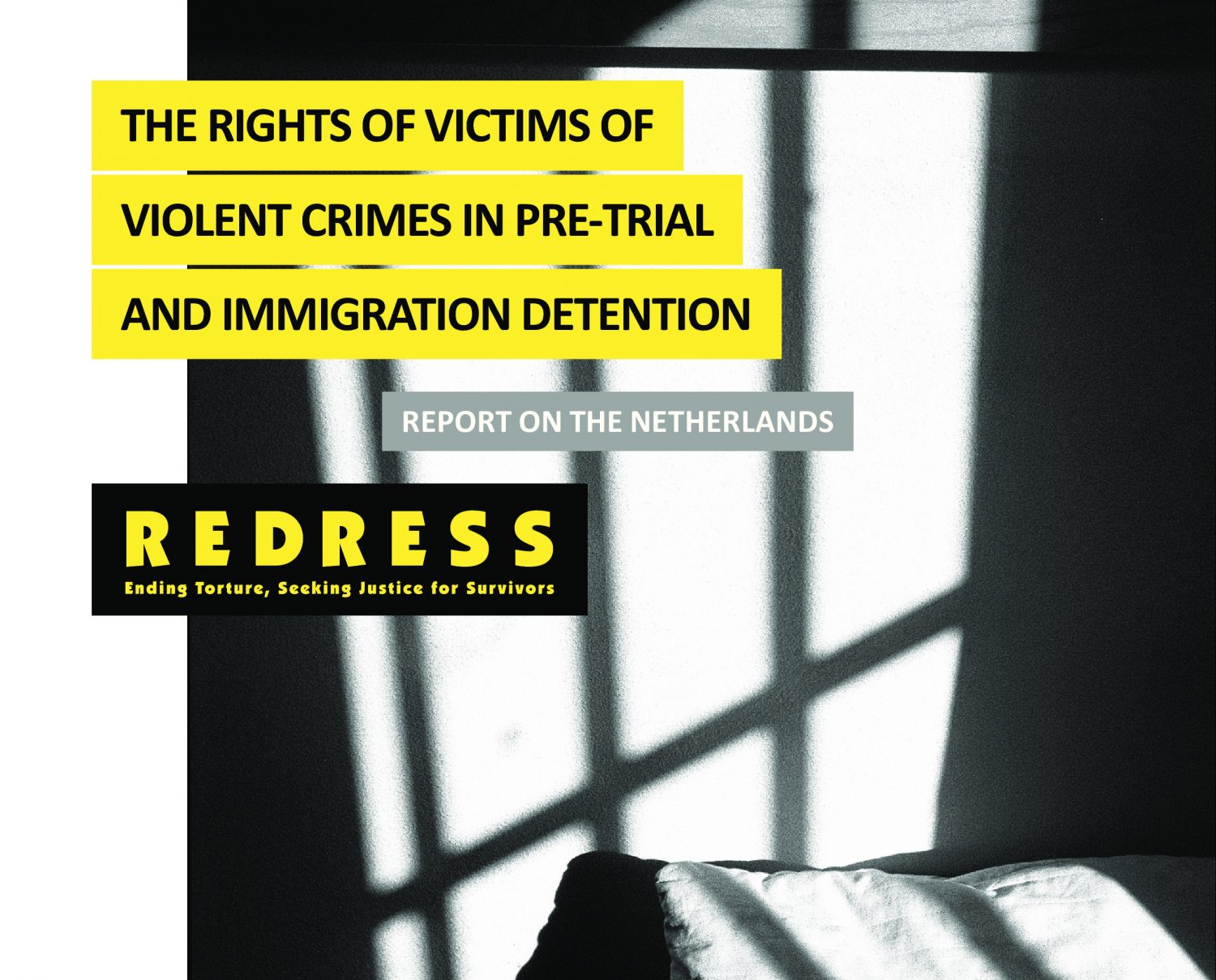
New report on the rights of victims of violent crimes in pre-trial and immigration detention in the Netherlands
A new REDRESS report explores the effectiveness of the current legal system in the Netherlands in ensuring the rights of victims of violence in pre-trial and immigration detention.
The Netherlands have adopted a strong framework on victims’ rights within its domestic criminal system: victims have to be informed of their rights in criminal proceedings at an early stage, including their right to participate in proceedings and to obtain legal representation, and to seek compensation. Yet the way in which these rights are implemented for victim detainees is inadequate, our new report finds.
Over a period of six months, REDRESS interviewed key stakeholders in relation to pre-trial and immigration detention, including ministry authorities, National Preventative Mechanism representatives, NGOs, lawyers, prosecutors and former detainees. They were interviewed on how victims of violence in pre-trial and immigration detention access their rights as victims in practice in the Netherlands, both through the complaint mechanism specific to detained persons, and through the regular penal system. REDRESS also extensively reviewed reports by NGOs, academics and the NPM, legal texts, and decisions in the Netherlands, and the reports of international and regional anti-torture bodies.
One of the findings of the report highlights concerns over the wide discretion of the directors of detention centres to restrict the rights of victim detainees an impose disciplinary measures, including solitary confinement. This is due to the lack the lack of specific laws governing the rights of victim detainees.
The report also finds that the right to information is not sufficiently implemented in relation to victim detainees. Often, victim detainees only receive information about their rights from their defense or immigration lawyer, in the absence of a clear point of information across detention centres.
Moreover, the report finds that the remedies that are available to victim detainees, whether in the regular criminal system, complaint mechanisms specific to detention centres, or disciplinary claims against detention staff, do not adequately protect the rights of victims detainees. For example, the report finds that complaint mechanism specific to detention centres are insufficient to address allegations of ill-treatment by staff, and there is concern over the lack of transparency in disciplinary procedures. The report shows that there is a tendency to relocate detention staff against whom there exist serious complaints from detainees rather than initiate their investigation and eventual prosecution.
Finally, the report highlights that the National Preventative Mechanism is not currently in a position to operate in the most effective way, due to a lack of cooperation between supervisory bodies. International and regional anti-torture bodies, as well as other NGOS, have also criticised the absence of a clear mandate as well as its lack of independence.
REDRESS makes several preliminary recommendations, pending further consultations with stakeholders in upcoming months. It suggests that:
- Detainees should be informed of their rights, and the rules and complaint mechanisms specific to the detention centre, upon arrival and periodically throughout their detention;
- A permanent focal point for victims should be established in all detention centres;
- Specific training on victims’ rights in the context of detention should be given to all detention staff;
- Authorities should ensure that asylum seekers and undocumented migrants in detention have access to independent and effective complaints mechanism for addressing complaints of alleged torture and ill-treatment;
- Clear communication channels should be established between the complaints committees and the national prosecution services in cases of serious allegations;
- Disciplinary rules and mechanisms against detention staff should be made more transparent;
- Clear criteria should be established by law for access of NGOs to detention centres;
- A clear mandate and structure should be provided to the National Preventative Mechanism to ensure its efficiency and independence.
The report is part of a wider European Union-funded project, Victims of Violent Crimes in Detention. The project is aimed at improving access to justice for victims of violent crimes suffered in pre-trial and immigration detention detention by ensuring full compliance with relevant EU directives. The project covers six European Union countries (the Netherlands, Belgium, Croatia, Hungary, Italy and Sweden).
The project is conducted in partnership with Fair Trials Europe, the Centre for Peace Studies, the Hungarian Helsinki Committee, Antigone, and Civil Rights Defenders.
The full report and recommendations are available here.
For more information or for an interview, please contact Eva Sanchis, REDRESS’ Head of Communications, on +44(0)20 7793 1777; +44(0)7857110076 (out of hours) or [email protected]
